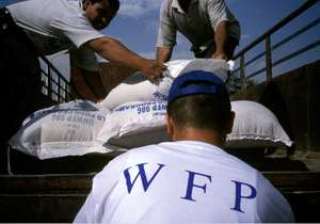15 million people facing “acute” food insecurity in Sudan: WFP
June 16, 2022 (KHARTOUM) – A least 15 million people or one-third of the population in Sudan are currently facing acute food insecurity, the Comprehensive Food Security and Vulnerability Assessment (CFSVA) released by the United Nations World Food Programme (WFP) indicates.
The CFSVA, a food security assessment led by WFP, ascertains the food security situation among the resident population, assess risk factors that contribute to food insecurity, and highlight vulnerable geographical areas.
This information on vulnerability enables well-informed decision-making processes for the agency’s programme design and targeting purposes and provides evidence for the expansion of future assistance programs.
The latest WFP assessment shows that food insecurity exists in all of Sudan’s 18 states, with ten most affected localities are Darfurs, which have been ravaged by nearly two decades of protracted conflict and displacement.
“The combined effects of conflict, climate shocks, economic and political crises, rising costs and poor harvests are pushing millions of people deeper into hunger and poverty,’ said Eddie Rowe, WFP’s Representative and Country Director in Sudan.
He added, “However, funding levels are not matching the humanitarian needs and we must act now to avoid increasing hunger levels and to save the lives of those already affected.”
According to the world’s largest humanitarian agency, the assessment projects that the already alarming food security situation is likely to worsen throughout the lean season in Sudan, which started this month and will last through September.
By that time, up to 40% of the population may slip into food insecurity, WFP and the UN Food and Agricultural Organization (FAO) had earlier warned.
“In the 2021/2022 harvest year, Sudan was able to produce 5.1 million tons of cereal, enough to cover the needs of less than two thirds of the population. If the ongoing agriculture season doesn’t receive robust support with agricultural inputs and livestock services, the number of food insecure people may dramatically increase to unprecedented levels and ultimately lead to more conflict and displacement,” said Babagana Ahmadu, FAO Representative in Sudan.
Cited as key drivers to the food insecurity were combined effects of the economic and political crisis, conflict and displacement, climate shocks, including droughts, floods and poor harvests in the past agricultural season.
The conflict in Ukraine has reportedly worsened the situation, further driving up food and fuel prices in Sudan, which depends on food imports with more than half of its wheat imports stemming from the Black Sea region.
Meanwhile, WFP and FAO called for urgent action, including increased funding, in order to save lives and prevent a looming hunger crisis in Sudan.
(ST)

